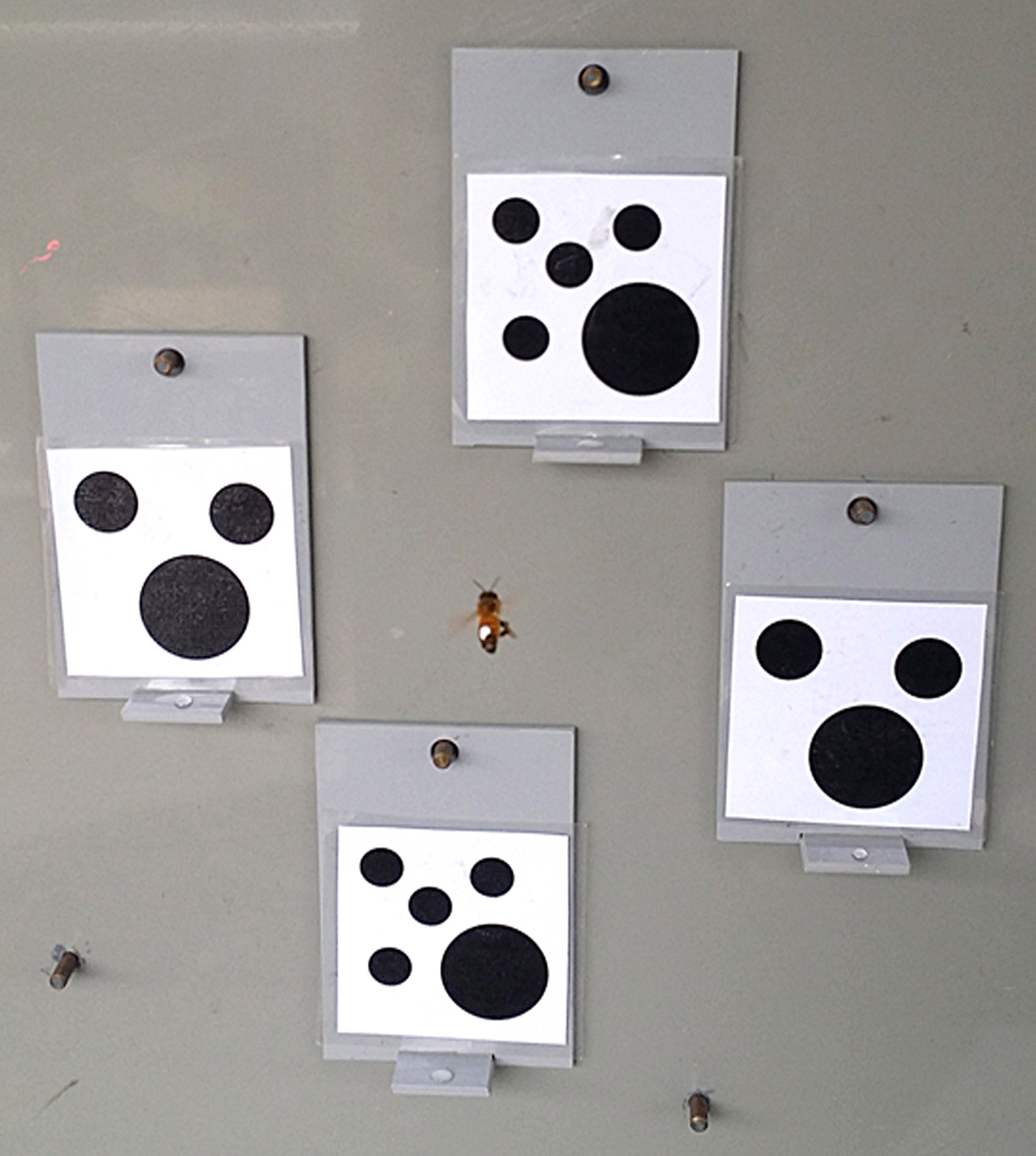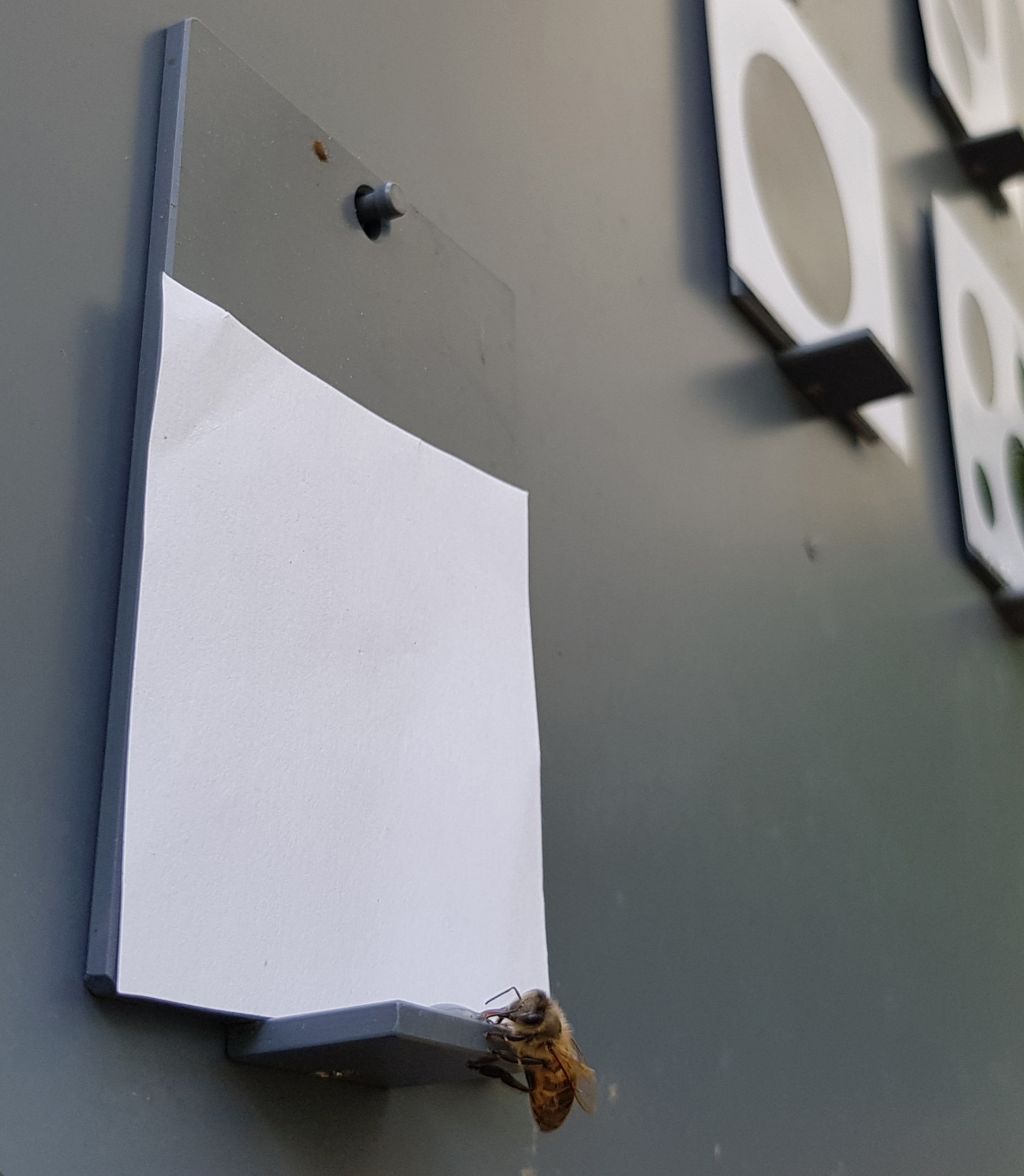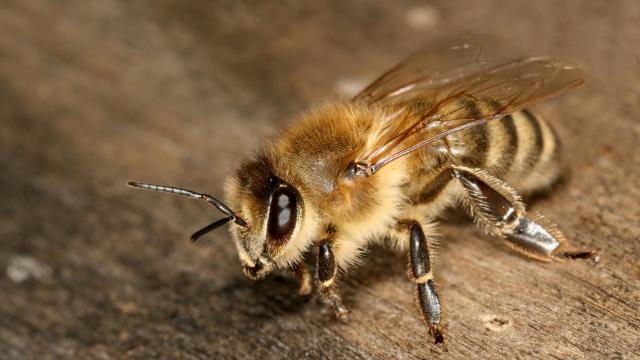A Carniolan honey bee.Photo: Wikimedia
Humans have relegated insects to the lower levels of the cognitive totem pole, but scientists are increasingly showing it’s a mistake to underestimate invertebrate intelligence. As a case in point, new research by French and Australian researchers suggests honey bees understand the concept of zero – a rare and complex capacity shared by an exclusive group of animals.
“Zero is a difficult concept to understand and a mathematical skill that doesn’t come easily — it takes children a few years to learn,” Adrian Dyer, a co-author of the new study and a researcher at RMIT University in Melbourne, Australia, said in a statement. “We’ve long believed only humans had the intelligence to get the concept, but recent research has shown monkeys and birds have the brains for it as well. What we haven’t known — until now — is whether insects can also understand zero.”
Dyer, with the help of his colleagues at the University of Toulouse in France, recently concluded a series of experiments suggesting the answer is yes, at least among honey bees. The apparent discovery that bees understand the concept of zero, or nothing, means these animals are smarter and more adaptable than we realised, and that big, bulbous brains aren’t necessarily required to comprehend some seemingly complex or abstract ideas. The new study, published today in Science, should also serve as inspiration to researchers involved in AI and robotics; there are simple and efficient ways to get small brains to perform powerful tricks.

A honey bee during the experiment.Photo: RMIT University
Bee brains have fewer than a million neurons, compared to the 86 billion neurons packed inside the human skull. But studies have shown that honey bees are capable of some extraordinary cognitive feats, such as understanding “same” and “different,” learning intricate skills from other bees, and the capacity to count (a trait known as numerosity) and to discriminate up to four objects. For the new study, Dyer and his team wanted to know if honey bees understand the concepts of “greater than” and “less than,” and by consequence, if they can extend this ability all the way down to zero.
For the experiment, the researchers lured honey bees to white sheets pasted on a wall, each of which contained between one and six dark shapes. Using a food reward in the form of a sugar solution, the bees were trained on “greater than” and “less than” tasks. So for a “less than” task, a bee was rewarded if it went to the sheet containing three black dots instead of the sheet with five black dots, for example.
Following this training, the bees were confronted with a completely new type of display: a completely blank sheet. Incredibly, bees trained on the “less than” task consistently went to the blank sheet instead of sheets containing one or more black shapes. They seemed to intuitively know that “nothing,” or zero, is less than one, despite never being exposed to an empty set before.
Now, that may not sound impressive, but it’s a huge deal. These insects are demonstrating a capacity so far seen in only a handful of nonhuman animals, namely primates (including rhesus and vervet monkeys) and the African grey parrot. Zero is something that even confounded early human civilizations, with some early numbering systems lacking the concept.

A honey bee approaching a blank sheet of paper, suggesting it knows “nothing,” or zero, is less than the other values presented. Photo: RMIT University
This discovery now presents a fascinating problem for neuroscientists.
“It is relatively easy for neurons to respond to stimuli such as light or the presence of an object but how do we, or even an insect, understand what nothing is?” asked Dyer. “How does a brain represent nothing? Could bees and other animals that collect lots of food items, have evolved special neural mechanisms to enable the perception of zero? If bees can learn such a seemingly advanced maths skill that we don’t even find in some ancient human cultures, perhaps this opens the door to considering the mechanism that allows animals and ourselves to understand the concept of nothing.”
Lars Chittka, professor in sensory and behavioural ecology at Queen Mary University of London, said the new study is another important contribution to the question of whether animals need big brains to solve tasks that have traditionally been thought of as complicated.
“Clearly, the answer is no,” Chittka told Gizmodo. “This begs the question of what neural circuitry a miniature brain like the bee’s might use to mediate such remarkable performances — this is obviously of interest to us biologists as well as the artificial intelligence crowd.”
Chittka, who wasn’t involved in the new study, said he couldn’t think of an obvious natural setting in which it’s important for bees to understand the number zero, but nonetheless, they appear to get it. That said, the finding is consistent with his own research on adaptive tool use in bees, showing that bees can flexibly cope with challenges they have never encountered before in their evolutionary history.
“This means, to my mind, that bees — and possibly many other animals — do not have the kind of ‘cognitive toolkit’ that is often inferred, that is, where they have one cognitive ability to cope with challenge A, another cognitive ability to cope with challenge B, and so on,” he said. “But instead it appears that they have a more general-problem solving ability (‘intelligence’) that allows them to cope with tasks they’re unlikely to encounter in nature. In human children, mathematical ability is often used as an indicator of general intelligence and logical problem solving skills — and the same may be the case in bees: the ability displayed in these experiments might be an indicator of a more multipurpose insect intelligence.”
But not everyone is convinced by these findings. Clint Perry, a research fellow and a colleague of Chittka’s at QMUL, says bees may very well be capable of understanding the concept of zero, but he doesn’t see the evidence for that in the current work. He says other simpler strategies can more easily explain the results.
“I applaud the authors for taking on the task of investigating such a difficult question in comparative cognition,” Perry told Gizmodo. “However, there are a number of control experiments that are missing for me to interpret their findings as evidence for bees understanding the concept of zero or even using any level of numerosity to solve the task. I feel a much more parsimonious explanation for the results is that bees chose stimuli based on a combination of simpler visual cues, such as the amount of black in each stimulus or the area or edge length of each stimulus, which I do not feel was properly controlled for, and how often the bees were rewarded on each category of stimulus during training.”
Perry, an expert in the cognitive capacities of animals with very small brains, says it’s interesting that bees might be able to understand the concepts of “greater than” and “less than,” but he believes a critical control was missing from the experiment, namely an accounting of reward history.
“I feel the question of whether bees understand the concept of zero, and even the absence of information, is still wide open and ripe for investigation, for which bees and other social insects are excellent subjects,” said Perry. “It’s an important question in regards to how certain types of cognition have evolved, will help us understand how cognition works in our larger brains, and will provide valuable information for development of better robotics and AI.”
For Chittka, the next step for researchers should be an investigation into the strategies used by bees in counting, and assessing number rules. For example, bees might look at number of dots in a display simultaneously, like humans do when looking at dots on dice, or they might use a kind of sequential “ticking-off” strategy in which they inspect items one after another, and then infer rules of “greater than” and “less than.”
There’s little doubt that more work needs to be done in this area, but it’s clear that bees, and likely many other insects, are capable of tricks we thought impossible for invertebrates. Keep that in mind the next time you reach for a bug swatter.
[Science]
